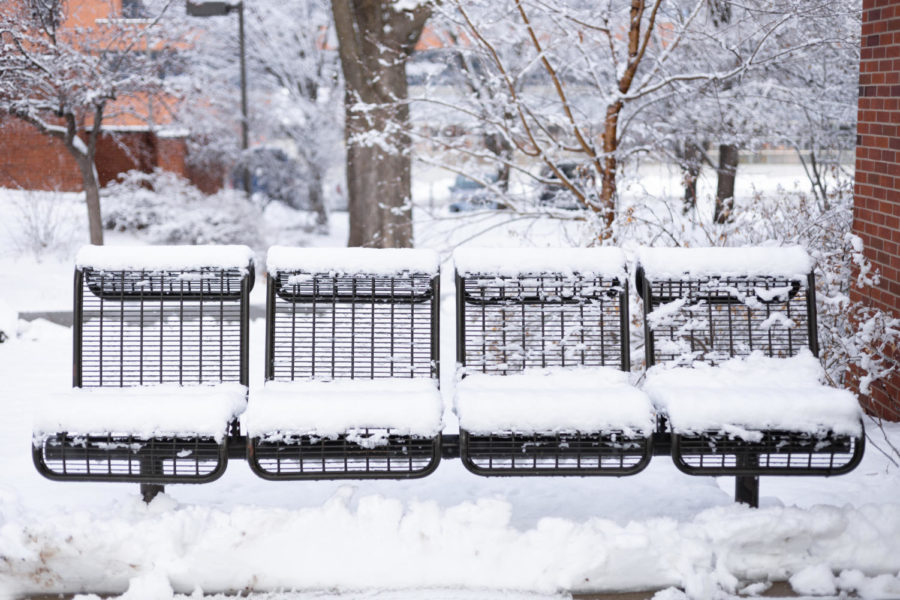COLUMN:Nibbling away at freedom, one corn dog at a time
August 28, 2002
There isn’t any getting around it, and there is no end in sight. Since this time last year, the world has become less free.
No, I’m not talking in grand ideological terms, like relating “free” to how the beautiful front entrances to state capitol buildings are gathering dust because the doorknobs have been removed and front-door entry is forbidden. This end of being free is in literal, tangible terms, and in large and small amounts – being prepared to cough up the cash.
On March 7, the United States District Court ruled that Iowa could not ban ATM fees in the state. By the week of April 10, Wells Fargo started charging $2.
Wells Fargo Chairman and CEO Lynn Horak said, “When you use a convenience store, you pay more for a gallon of milk than you would in a grocery store. This is the same type of situation.” Horak conveniently forgot that while when somewhere else in the state you can still go to a grocery store and get your cheaper milk, the bank your ATM card belongs to may not be as accessible – or even in the same area code. It’s a “convenience” fee, Wells Fargo said, even though it has become a standard part of life. A Dubuque Telegraph-Herald editorial said it well: “No one likes being charged to access their own money.”
Six months later, it seems the fee is the rule rather than the exception. Not even that most sacred of institutions, the Iowa State Fair, was immune. It took nearly the price of a corn dog, $2, to get cash to buy said corn dog.
Iowa’s law, the last one standing, was challenged under the National Bank Act, which the banks said allows them to charge any fees they want to – an act first signed into law by Abraham Lincoln. And let’s face it: The banking industry is too powerful, and delights in soaking the customer too much, for Congress to amend a law originally created 105 years before the first ATM showed up. It could be worse – most banks in Iowa aren’t charging their own customers fees for every ATM transaction. Yet.
This variance of “bait-and-switch,” charging for what we’ve grown used to having for free, didn’t stop with Iowa.
Beginning in April, CNN.com stopped offering free multimedia. Before then, it offered a variety of audio and video clips for all sorts of topics, providing a valuable service for those both with and without CNN itself. Best of all, the content was offered in the three major multimedia formats. But now, to see anything move past your eyes or through your ears, you’ll pay for it, at $4.95 a month or $39.95 a year.
More recently, after CNN’s move, ABCNews.com started charging too. Video access on ABC is also $4.95 a month – and it doesn’t work on a Mac! CBS News and MSNBC are still free, but how long will that last?
At Macworld New York in July, Apple decided to pull the plug wholesale on iTools, the free service that allocated 20 megabytes of Internet disk space and an “@mac.com” e-mail address. The only service now would be “.Mac” – 100 megs of space, e-mail, a backup program, and virus software. It did not matter, of course, that most customers do not need that much, do not need external backup, and almost never meet a virus. It did not matter that many users of all ages helped Apple out by “advertising” their Mac usage in their addresses and showcasing the ease of iMovie. Everyone – from families with their first Web pages, to the mom showing her karate pictures – will have their pages go dark at midnight October 1. Unless, that is, current iTools users cough up $49.95 now – and then $99.95 every year for the rest of its existence.
Finally, the fee that may hit college students the most: Domino’s is currently trying out a $1 fee for delivery in 350 outlets and will decide by the end of the year to take it nationwide. And Pizza Hut’s been charging 50 cents.
Individually, the charges may not be much, but together, it may turn out to be getting “nibbled to death by ducks.” Perhaps the beginning of the 21st century is when the nose ceased to be what we smelled with and began to be what we paid through.
Jeff Morrison
is a junior in journalism and mass communication and political science
from Traer.






